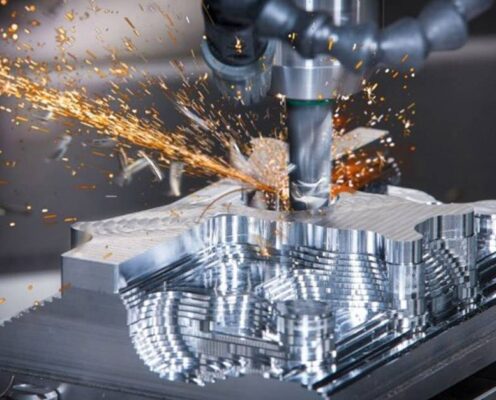At Gentzler Tool & Die, our CNC milling services deliver precision and efficiency, creating complex parts with tight tolerances and intricate geometries. Using advanced CNC milling machines, we cater to industries ranging from aerospace to electronics. Whether you need a functional prototype or large-scale production, our team ensures consistent, high-quality results tailored to your specific requirements.
What Is CNC Milling?

What Is a CNC Milling Machine?
A CNC milling machine is a computer-controlled device that uses rotary cutters to remove material and shape a workpiece. CNC milling machines come in several configurations:
Vertical Milling Machines: The cutting tool is oriented vertically, ideal for small components and simple designs.
Horizontal Milling Machines: The tool operates horizontally, allowing for deeper cuts and better chip evacuation.
Multi-Axis CNC Machines: Advanced machines with 4 or 5 axes for complex designs, such as curved surfaces and intricate details.
Each CNC milling machine offers different capabilities depending on the material, part design, and production volume. These machines are essential for applications where consistency, precision, and speed are crucial.
Benefits of CNC Milling
High Precision: Achieve tight tolerances with superior accuracy, which is critical for aerospace, automotive, and medical parts.
Automation & Efficiency: Automation ensures fast production, reduces the chance of human error, and allows for overnight operations.
Versatility: Handle various materials with high repeatability, from soft plastics to hardened metals.
Prototyping & Production: CNC milling is well-suited for creating functional prototypes and large-scale production runs.
Customization: Easily adjust designs through CAD software, allowing for rapid iterations during the prototyping phase.
Common Metals Used in CNC Milling
Industrial Applications
CNC milling services are essential across a wide range of industries, including:
Aerospace: High-precision components for engines and structural parts.
Automotive: Engine components, brackets, and transmission parts.
Medical: Surgical instruments, implants, and medical device components.
Electronics: Heat sinks, enclosures, and connectors.
Oil & Gas: Custom fittings, valves, and parts for harsh environments.
Contact Us
Need precise and reliable CNC milling services? Contact us today to discuss how our advanced CNC milling machines can help bring your project to life with accuracy, efficiency, and high quality.
